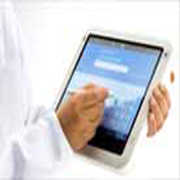2019 Visioning Activities

Computational Support for Substance Use Disorder Prevention, Detection, Treatment, and Recovery
/The goal of this workshop was to bring together a group of researchers with expertise in relevant content, technology, and method domains to accelerate and guide progress in this important area.

Assured Autonomy Workshop #1
/The workshop identified current and anticipated challenges and problems in assuring autonomous systems within and across applications/sectors.

Wide-Area Data Analytics
/Modern datasets are often distributed across many locations. This workshop brought together researchers and practitioners in the database, networking, distributed systems, and storage fields in order to bridge the gap in research within wide-area data analytics.

AI Roadmap
/In fall 2018, the Computing Community Consortium (CCC) started a new initiative to create a Roadmap for Artificial Intelligence, led by Yolanda Gil (University of Southern California and President-Elect of AAAI) and Bart Selman (Cornell University). A series of three workshops were held in the Fall/Winter of 2018/2019, with the goal of identifying challenges, opportunities, and pitfalls, and create a compelling report that will effectively inform future federal priorities—including future AI R&D Investments. The final report is now available.

Economics and Fairness
/The Computing Community Consortium's (CCC) Fairness and Accountability Task Force held a visioning workshop on Economics and Fairness, May 22-23, 2019 in Cambridge, Massachusetts. This workshop brought together computer science researchers with backgrounds in algorithmic decision making, machine learning, and data science with policy makers, legal experts, economists, and business leaders to discuss methods to ensure economic fairness in a data-driven world.

Misinformation Roundtable
/This roundtable brought together computer scientists along with experts from disciplines potentially to include electrical engineering, psychology, marketing, information science, and political science to discuss challenges in detecting and countering misinformation.

Content Generation for Workforce Training
/The CCC held a visioning workshop in Atlanta, GA in March 2019 to discuss and articulate research visions for authoring rich graphical content for new workforce training. The workshop's goal was to articulate research challenges and needs and to summarize the current state of the practice in this area.

Identifying Research Challenges in Post Quantum Cryptography Migration and Cryptographic Agility
/The overall objective of this workshop was to identify academic research challenges in PQC migration and cryptographic agility. That is, organizers wanted to identify aspects of the complex and global migration to new public-key cryptography standards that could benefit from a more rigorous study and analysis.

Artificial Intelligence Roadmap Workshop 3 – Self Aware Learning
/Given the increasingly pervasive use in AI technologies in all sectors of industry and government and the enormous potential for future AI-based technologies, NSF has asked the Computing Community Consortium to organize an AI Roadmap to help prioritize research investments. The third workshop theme is Learning and Robotics and took place on January 17-18, 2019 in San Francisco. The chairs of the Self Aware Learning workshop are Fei-Fei Li (Stanford University) and Thomas G. Dietterich (Oregon State University). This is part of the AI Roadmap workshop series – view the series page here.

Artificial Intelligence Roadmap Workshop 2 – Interaction
/Given the increasingly pervasive use in AI technologies in all sectors of industry and government, and the enormous potential for future AI-based technologies, NSF has asked the Computing Community Consortium to organize an AI Roadmap to help prioritize research investments. The second workshop theme is interaction and will take place on November 14-15, 2018 in Chicago. The chairs of the interaction workshop are Kathy McKeown (Columbia University) and Dan Weld (University of Washington). This is part of the AI Roadmap workshop series – view the series page here.

Thermodynamic Computing
/Thermodynamics has been a historical concern in the engineering of conventional computing systems due to its role in power consumption, scaling, and device performance. Today, we see thermodynamics re-emerging in a new role as an algorithmic technique in areas such as machine learning, annealing, quantum, and neuromorphic systems. Recent theoretical developments in non-equilibrium thermodynamics suggest thermodynamics may become the basis of a new “thermodynamic computing” paradigm. For example, it may lead to computing systems that self-organize in response to external input.






